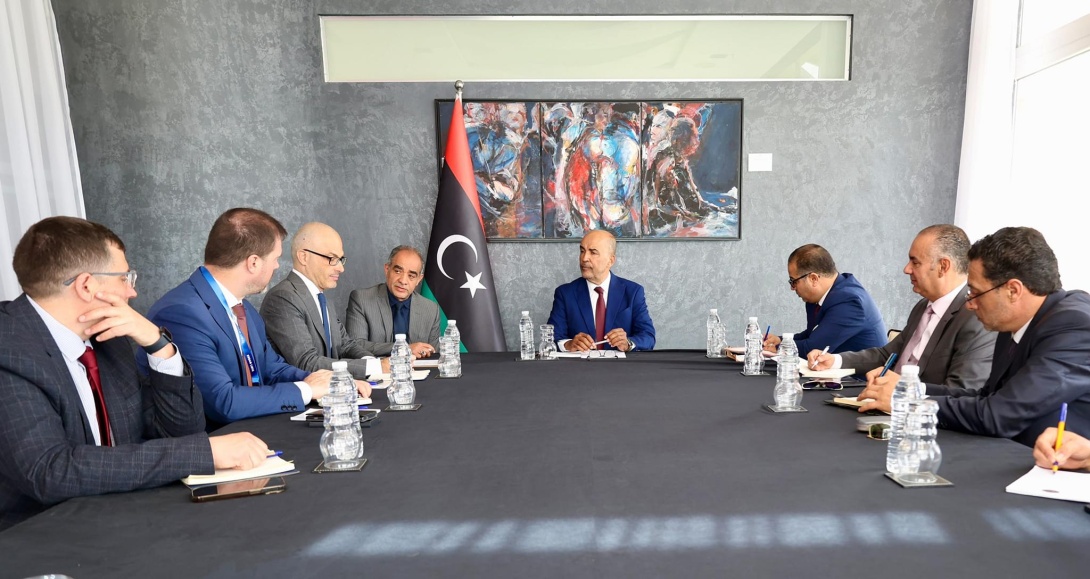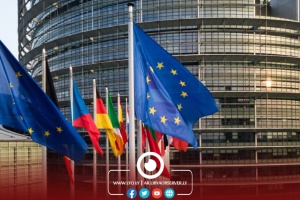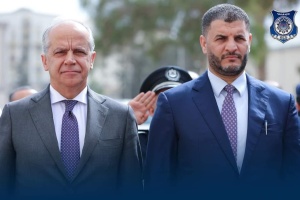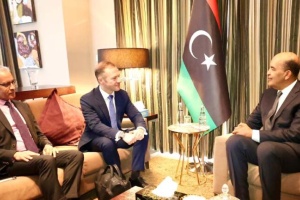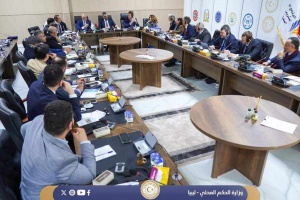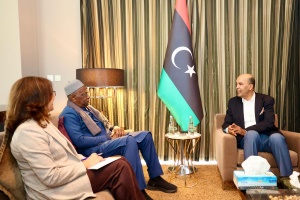The European Union (EU) Ambassador to Libya, Nicola Orlando, stressed the EU's desire to help Libya address the issue of illegal immigration as a transit country facing the pressures of this phenomenon, which is pushing increasing numbers of people to leave their homelands, adding that Libya should not bear the burdens of this issue alone.
Orlando's remarks came during a meeting with the Presidential Council's Deputy Head Mossa Al-Koni on Sunday, in the presence of the Head of EUBAM, to discuss aspects of joint and direct cooperation between Libya and the EU in various fields.
The Presidential Council's media office said that the EU Ambassador stressed the importance of addressing this file in its regional and international dimensions, according to what the Deputy Head said in the One Desert Initiative. Orlando explained that the EU adopted this new, important and deeply significant geopolitical concept, as events had proven the importance of this forward-looking vision that made the desert an integrated political unit, and it was not possible to deal with any of its parts without taking into account the entire geographical and political map.
He said that this initiative was inspiring for the European Union, which will not delay supporting the Deputy Head in this direction. Hel also stressed the EU's support for the efforts and vision of Al-Koni to control the southern borders to reduce illegal immigration and organized crime that had troubled the Mediterranean region.
Al-Koni stressed the need to begin work effectively to transform the verbal agreements into a tangible reality that Libyans await. He said that the issue of illegal immigration is one of the thorny issues that Libya cannot solve without fruitful and direct cooperation with the European Union, and that controlling the southern borders establishes an essential step to combat organized crime and human smuggling, which have increased due to the conditions in neighboring countries.
Al-Koni explained that what the “One Desert” initiative aims to do is restore the spirit of this comprehensive geopolitical space as one that brings together the peoples and races that inhabit the region.
"It was a comprehensive desert, and what has made it today a source of concern is the interference of some foreign parties or terrorist or criminal gangs that are trying to make it a point of conflict, and this gives Libya its leadership role in resolving the problems that may hinder the vitality of this comprehensive and unified space." He said.
Meanwhile, the Head of EUBAM stressed that the entitlement to help Libya in managing its maritime and southern borders in particular is based on this Libyan approach, which seeks to ensure Libya’s full sovereignty over its borders and its pioneering role in the context of regional solutions to the various threats facing the region. He said that the signing of the memorandum of understanding with the Ministry of Foreign Affairs will facilitate the mission's work in this context without delay.

